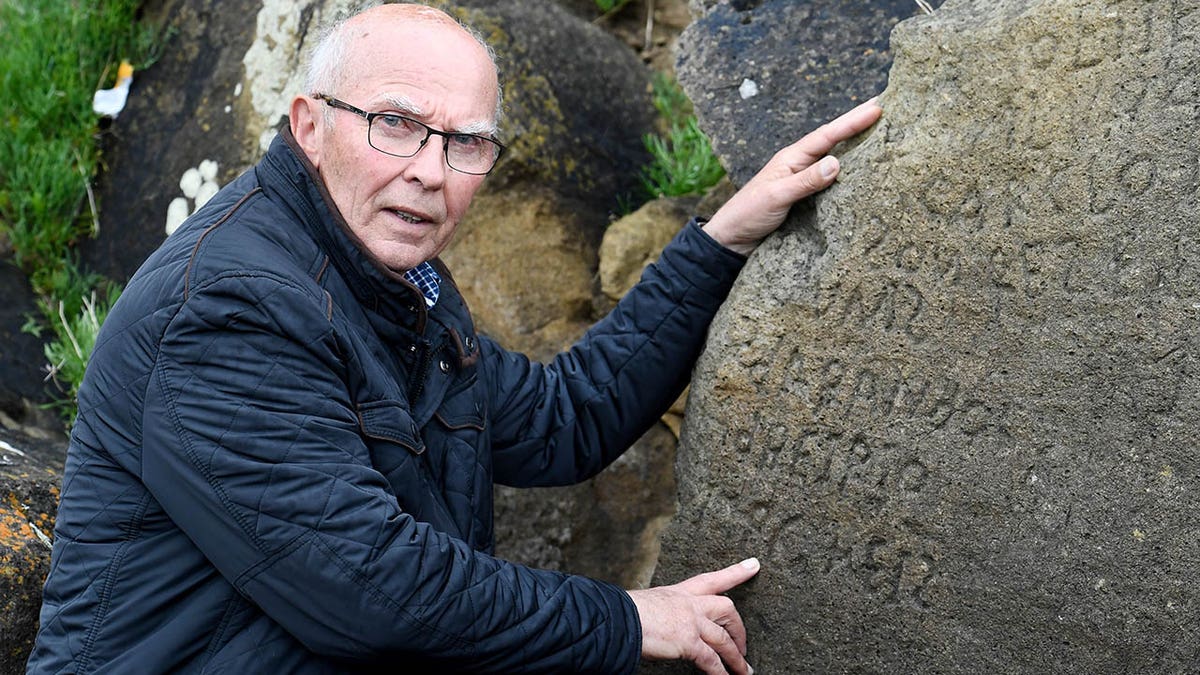Fox News Flash top headlines for May 10
Fox News Flash top headlines for May 10 are here. Check out what's clicking on Foxnews.com
Calling all history buffs: A French village is offering a reward to anyone who can decipher an unusual inscription on a centuries-old rock located on a nearby beach.
Officials in the town of Plougastel in the region of Brittany, which is located in northwest France, are offering about $2,250 if someone can decipher the roughly 20 lines of writing on the rock, which was first discovered a few years back, per the BBC.
ELEPHANT MAN’S UNMARKED GRAVE DISCOVERED IN THE SAME CEMETERY AS JACK THE RIPPER VICTIMS
The inscription includes a series of capitalized letters, two dates — 1786 and 1787 — and carvings of a boat and a sacred heart, the BBC reported, which noted local experts have hypothesized it may be written in old Breton or Basque.
"This inscription is a mystery and it is for this that we are launching the appeal," Veronique Martin, who is leading the search, said, according to Agence France-Presse.
"These dates correspond more or less to the years that various artillery batteries that protected Brest and notably Corbeau Fort which is right next to it," she added.

The inscriptions composed of indecipherable words on a rock in the Brittany village of Plougastel-Daoulas. The city launched a national call with a 2,000 euros reward to anyone able to solve the mystery of those inscriptions probably made during the 18th century. (FRED TANNEAU/AFP/Getty Images)
The inscription reads, in part: "ROC AR B... DRE AR GRIO SE EVELOH AR VIRIONES BAOAVEL... R I OBBIIE: BRISBVILAR... FROIK...AL," per the publication. According to the BBC, some of the letters are upside-down and some Scandinavian-style Ø letters are also visible.
5,000-YEAR-OLD MASS GRAVE SUGGESTS IMPORTANCE OF FAMILY IN ANCIENT CULTURES, RESEARCH FINDS
"We've asked historians and archaeologists from around here, but no-one has been able to work out the story behind the rock," Dominique Cap, the mayor of Plougastel, said, according to the BBC. "So we thought maybe out there in the world there are people who've got the kind of expert knowledge that we need. Rather than stay in ignorance, we said let's launch a competition."
The competition’s name — The Champollion Mystery at Plougastel-Daoulas — is a reference to Jean-François Champollion, the so-called “Father of Egyptology” who is credited with decoding the Egyptian hieroglyphics on the famed Rosetta Stone.









































